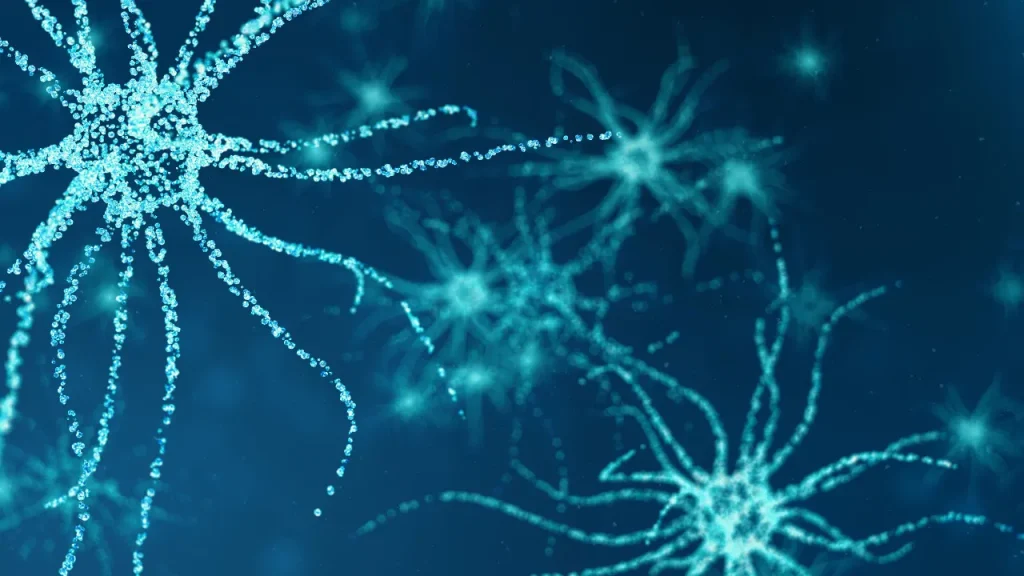The perennial North American plant known as blue flag (iris versicolor) has long been valued for its many therapeutic benefits. blue flag, which is well-known for its eye-catching blue-violet blossoms, has gained popularity as a nutritional supplement. Recent studies have provided information on its potential health advantages, ideal dosage, and appropriate use. In-depth discussion of blue flag’s chemistry, physiological methods of action on the body and brain, potential side effects, and drug interactions will be covered in this article.
You May Also Like:
Sunmed CBD vs. Partnered Process CBD: Finding the Best CBD for Sleep
What is Non Restorative Sleep? Here are 5 Great Ways to Get Quality Rest Every Night
Blue Flag: Benefits, Dosage, Side Effects, Drug Interactions, and Other Important Information is an original (NootropicsPlanet) article.
Nature of Blue Flag
Iris versicolor, a perennial herbaceous plant in the iridaceae family, is known as the “blue flag.” It is indigenous to North America and mainly grows along pond and stream borders, marshes, and wetlands. The plant can reach a height of 2-4 feet and has sword-shaped leaves, and is most notable for its blue-violet blooms, which bloom from May to July. These flowers have three petals that face upward, called standards, and three petals that face downward, called falls. The falls feature a central yellow or white patch.
Native American tribes have historically used different portions of the blue flag plant, such as the rhizome (underground stem), for their therapeutic powers. Due to the multiple bio-active components that make up blue flag, which also contribute to the numerous health advantages it provides, it has become more and more well-liked as a dietary supplement in recent years.
Health Benefits of Blue Flag
According to its pharmacological characteristics, blue flag can provide the following health advantages:
- Digestive Health: Blue Flag can help with indigestion, bloating, and constipation by encouraging bile secretion. Additionally, it can help soothe inflamed mucous membranes and lessen symptoms of gastrointestinal illnesses like irritable bowel syndrome (IBS) and inflammatory bowel disease (IBD) due to its anti-inflammatory and astringent characteristics.
- Liver Health: Blue flag promotes liver detoxification procedures and shields liver cells from harm, which can potentially lower the risk of liver disorders like cirrhosis, hepatitis, and non-alcoholic fatty liver disease.
- Support for the Immune System: Blue flag’s immunomodulatory properties work to keep the immune system in balance by lowering the risk of autoimmune diseases and persistent inflammation.
- Neuro-protective and Antioxidant Effects: Blue flag’s antioxidant abilities can lower the chance of developing chronic conditions like cancer and cardiovascular disease that are brought on by oxidative stress. Its neuro-protective effects can also help to preserve cognitive function and lower the likelihood of neuro-degenerative diseases like Parkinson’s and Alzheimer’s.

Chemistry of Blue Flag
The main bio-active elements in blue flag include iridoids, flavonoids, and tannins. Irigenin and iridin, the two most notable iridoids, are in charge of the plant’s choleretic, anti-inflammatory, and immunomodulatory activities. Tannins are responsible for the plant’s astringent and anti-inflammatory activities, whereas flavonoids are polyphenolic substances with antioxidant capabilities. Volatile oils, organic acids, and minute amounts of alkaloids like iridodial, iridomyrmecin, and irisolidone are also present as components.
Physiological Properties of Blue Flag
Due to the variety of its bio-active components, blue flag has a wide range of pharmacological effects on the body and brain. The primary mechanisms of action behind blue flag’s positive effects on health are as follows:
- Iridoids like iridin promote bile production in the liver and enhance bile secretion into the small intestine, aiding digestion and fat absorption. This is known as the choleretic action. Iridoids may also shield liver cells from harm by limiting lipid peroxidation and boosting the removal of toxic chemicals.
- Prohibiting the synthesis of pro-inflammatory mediators including tumor necrosis factor-alpha (TNF-alpha), interleukin-6 (IL-6), and prostaglandins are blue flag components, particularly iridoids and flavonoids. In addition to regulating the immune response and lowering inflammation, these substances also promote the release of anti-inflammatory mediators like interleukin-10 (IL-10) and transforming growth factor-beta (TGF-).
- Blue Flag flavonoids, like quercetin and kaempferol, scavenge free radicals and shield cells from oxidative damage. These substances can aid in delaying the onset of chronic illnesses like cancer, cardiovascular disease, and neurological disorders by lowering oxidative stress.
- Flavonoids in particular, which are present in blue flag, can have neuroprotective benefits by improving synaptic plasticity, reducing neuronal damage, and controlling neurotransmitter release. Additionally, flavonoids have been demonstrated to prevent the amyloid-beta peptide aggregation that is a characteristic of Alzheimer’s disease, potentially reducing cognitive deterioration.

Optimal Dosage of Blue Flag
The ideal dosage of blue flag as a dietary supplement varies based on your age, body weight, and pre-existing medical issues. However, a general recommendation recommends taking 500–1,000 mg of blue flag daily in the form of a standardized extract that contains 4-6% total iridoids. Before beginning any supplementation program, it is crucial to speak with a medical practitioner to establish the right dosage depending on yourunique needs.
Side Effects of Blue Flag
While blue flag is typically regarded as safe when used in moderation, it can have significant side effects, especially when taken in excess. Consequences include nausea, vomiting, diarrhea, pain in the abdomen, and skin irritation. If you are allergic to plants in the iridaceae family, blue flag may potentially induce allergic responses.
Possible Drug Interactions
Before taking a supplement containing blue flag, you should take into account the possibility of drug and substance interactions.
- Anticoagulants and Anti-platelet Pharmaceuticals: When used with blood-thinning treatments like warfarin, heparin, and aspirin, blue flag’s anti-inflammatory propertiess may raise the risk of bleeding. Before beginning a blue flag supplementation regimen, it is imperative to speak with a healthcare provider if you are using anticoagulants or anti-platelet medications.
- Diuretics: When combined with diuretic drugs including furosemide, hydrochlorothiazide, and spironolactone, blue flag can raise the risk of electrolyte imbalance and dehydration due to its modest diuretic effect.
- Hypoglycemic Drugs: Blue flag can interact with insulin, metformin, and sulfonylureas, three drugs used to reduce blood sugar levels. When using blue flag supplements, if you have diabetes or are using hypoglycemic medications, you should keep a close eye on your blood sugar levels.
Potential Substance Interactions
Before taking a supplement containing blue flag, you should take into account the possibility of drug and substance interactions.
Anticoagulants and Anti-platelet Pharmaceuticals: When combined with blood-thinning treatments like warfarin, heparin, and aspirin, blue flag’s anti-inflammatory properties can increase the risk of bleeding. Before beginning a blue flag supplementation regimen, it is imperative to speak with a healthcare provider if you are using anticoagulants or anti-platelet medications.
Diuretics: When combined with diuretic drugs such furosemide, hydrochlorothiazide, and spironolactone, blue flag can raise the risk of electrolyte imbalance and dehydration due to its modest diuretic effect.
Medications used to decrease blood sugar, such as insulin, metformin, and sulfonylureas, may interact with blue flag. When using blue flag supplements, if you have diabetes or are using hypoglycemic medications, you should keep a close eye on your blood sugar levels.
Immunosuppressive drugs, such as corticosteroids, cyclosporine, and tacrolimus, which are used to treat autoimmune disorders and prevent organ transplant rejection, may not work as well as intended when taken with blue flag due to its immunomodulatory properties. If taking immunosuppressive drugs, speaking with a doctor before taking blue flag supplements is advised.

Best Responsible Uses of Blue Flag
The following suggestions are to be taken into account when using blue flag as a nutritional supplement to guarantee best responsible use:
- Speak with a medical expert: It’s important to speak with a medical expert before beginning any supplementation plan in order to identify the right dosage depending on your specific needs and to rule out any possible interactions with prescription drugs or pre-existing medical issues.
- Select a high-quality dietary supplement: Go with a renowned company that supplies standardized blue flag extract to guarantee consistency in quality and potency.
- Comply with the dose recommendations: To prevent potential side effects or interactions, follow the general dose recommendations or the advice of a healthcare professional.
- Keep an eye out for negative effects: Stop using blue flag vitamins immediately and seek medical advice if any uncomfortable symptoms develop.
Blue Flag:
Conclusion
Blue flag can be very beneficial to overall health, however, it is important to keep the following information in mind. Substrates for the cytochrome P450 enzyme system, which is in charge of the metabolism of numerous drugs, include some of the bio-active substances in blue flag, such as flavonoids. Certain medications that are metabolized by the cytochrome P450 system may become less effective as a result of this interaction or may experience more side effects. Before beginning a blue flag supplementation regimen, if you are taking drugs that are metabolized by this enzyme system, you must speak with a healthcare provider.

References:
- Flavonoids and Brain Health: Multiple Effects Underpinned by Common Mechanisms. Retrieved from: https://www.ncbi.nlm.nih.gov/pmc/articles/PMC2593006/
- Choleretic Activity of Iridoid Compounds and Their Derivatives. Retrieved from: https://pubmed.ncbi.nlm.nih.gov/29419756/
https://pubmed.ncbi.nlm.nih.gov/29419756/
Important Note: The information contained in this article is for general informational purposes only, and should not be construed as health or medical advice, nor is it intended to diagnose, prevent, treat, or cure any disease or health condition. Before embarking on any diet, fitness regimen, or program of nutritional supplementation, it is advisable to consult your healthcare professional in order to determine its safety and probable efficacy in terms of your individual state of health.
Regarding Nutritional Supplements Or Other Non-Prescription Health Products: If any nutritional supplements or other non-prescription health products are mentioned in the foregoing article, any claims or statements made about them have not been evaluated by the U.S. Food and Drug Administration, and such nutritional supplements or other health products are not intended to diagnose, treat, cure, or prevent any disease.


